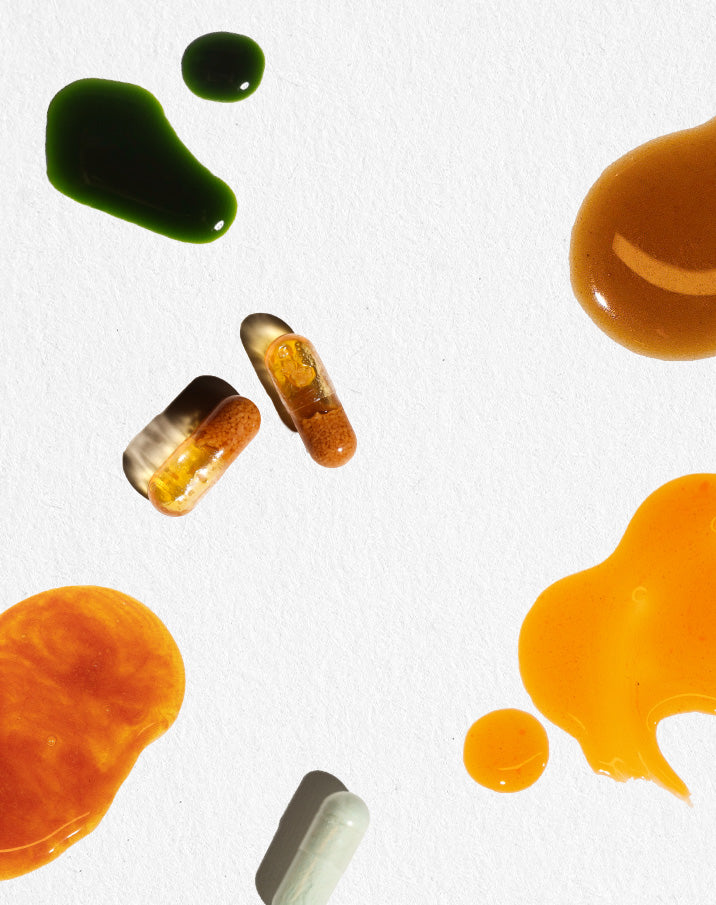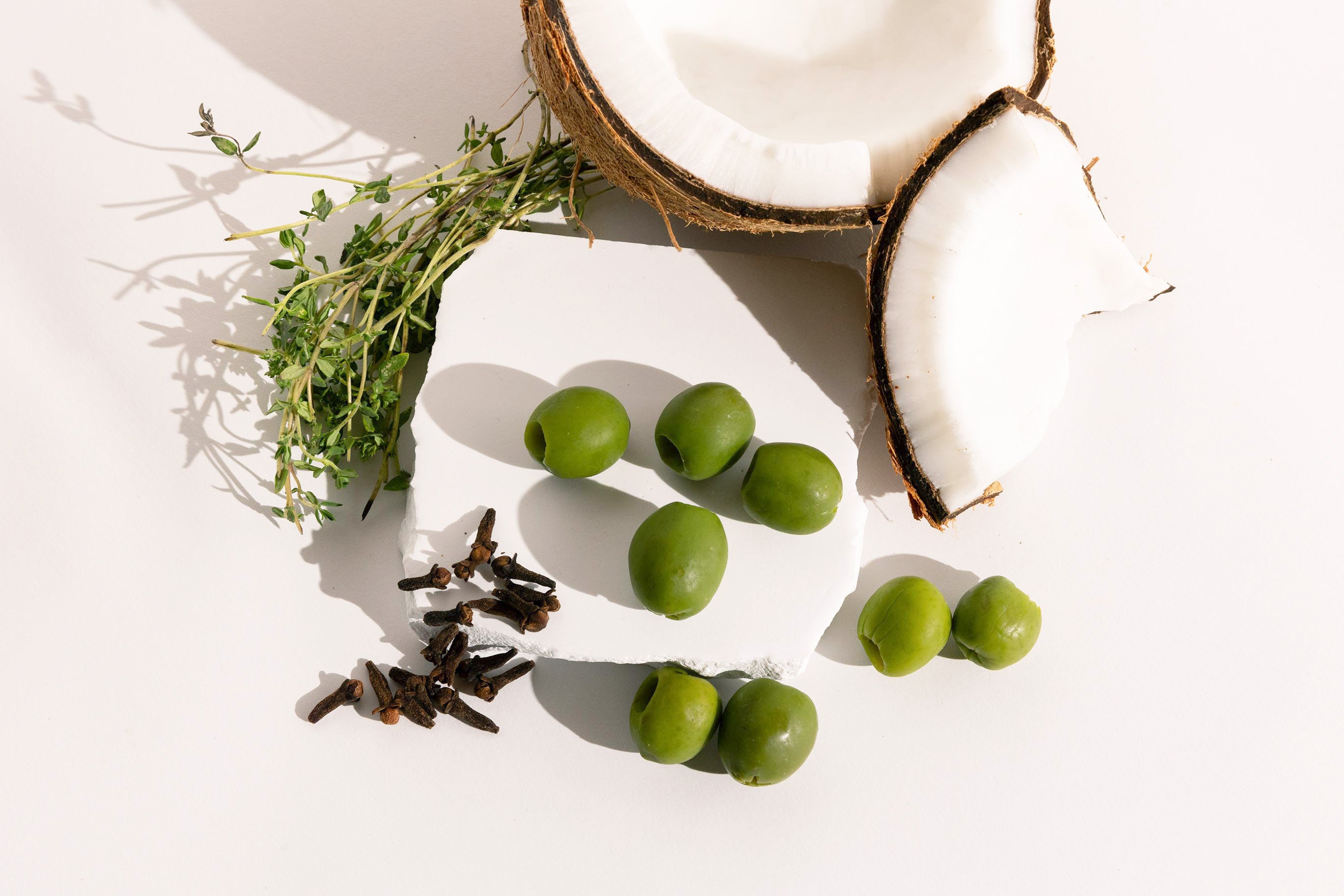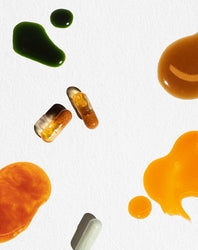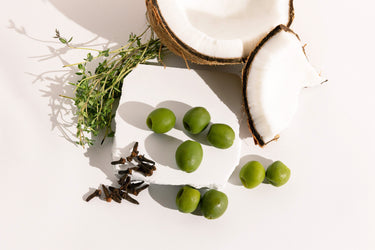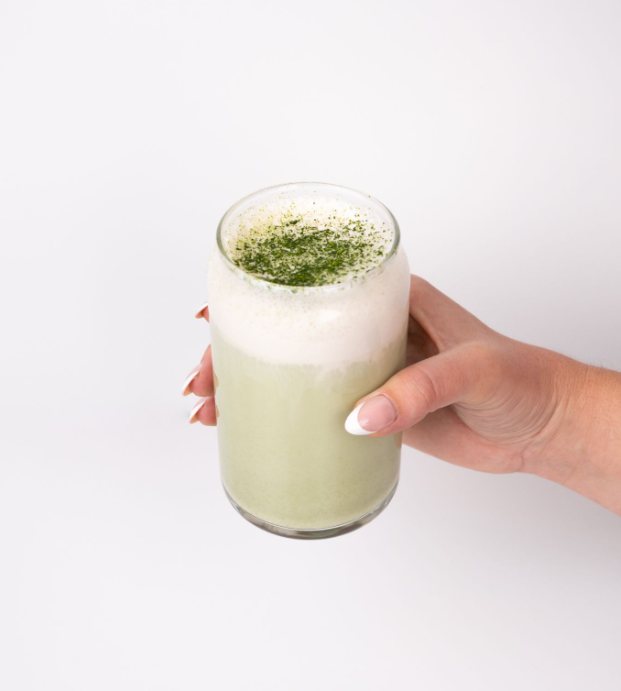
Your child’s immune system is their first line of defense against germs, bacteria, and illnesses.1 It’s a built-in anti-sickness system that, in most cases, can help to prevent illness even when they’re exposed. But sometimes, your kids’ immune system could use some extra support.
Whether they’re coming in contact with an influx of new germs at the start of the school year or simply catching colds more often than you’d like, there are steps you can take to bolster those defenses. Knowing how to boost kids immune systems involves helping them stay strong from the inside out.
Below, we’ll discuss seven healthy habits and immune defense supplements to boost a child’s immune systems so they’re ready to fight off whatever bugs come their way.
#1 Load Up Their Plates With Fruits and Veggies
A healthy immune system often starts with a healthy diet.1 Serving your kids plenty of fruits and veggies can help to ensure they consume the nutrients they need to strengthen their innate immunity.
Fruits and vegetables keep the gut microbiome healthy, which can support optimal immune function. After all, 70% of the immune system lives in the gut.2 Plant foods are also chock full of essential vitamins and minerals.
According to a 30-year study published in 2021, eating at least five servings of fruits or vegetables a day leads to the best health outcomes.3 If your little one is not a fan of broccoli or Brussels sprouts, you can:
- Sneak greens into a tasty fruit smoothie
- Serve up sliced veggies with a tasty plant-based dip
-
Blend up a vegetable soup so certain ingredients aren’t so easily identifiable
#2 Limit Processed Foods and Refined Sugar
When it comes to building a strong immune system, what you don’t eat is just as important as what you do eat.
Processed junk foods and refined sugars are notorious for taking a toll on the immune system.4 Research has also shown that the standard Western diet, which tends to be a little imbalanced between the major food groups, can disturb the gut microbiome and suppress immune function.1
While you don’t have to deprive your kids of cookies and ice cream all of the time, limiting these sweets to special occasions can help them stay healthy. Day to day, you can replace processed foods with whole food alternatives, such as:
-
Nice cream – Nice cream is a delicious, plant-based ice cream alternative you can make at home. Simply blend some frozen bananas with other fruits for a cold, creamy treat.
-
Oat cookies – Skip the store-bought cookies and whip up a homemade batch with simple, plant-based ingredients instead. Mashed banana, nut butter, and oats are all you need to create the base. You can add additional ingredients to tailor your cookies to your child’s taste.
- Air-fried potato crisps – If your child has more of a salty tooth than a sweet tooth, you can create crunchy potato crisps in an air fryer and avoid all of the preservatives found in salty snacks from the store.
#3 Give Them Immune-Boosting Supplements
Serving your kids nourishing foods can help them consume many of the nutrients they need to stay healthy. But for children who haven’t yet grown to love the veggies on their plate, or whose eyes are bigger than their stomachs, you can also fill in any gaps through supplementation.
Here are some supplements to boost child's immune systems:
- Elderberry – Thanks to its abundant antioxidants, Elderberry has been shown to strengthen the immune system and speed up cold flu recovery.5 Elderberry oil is very easy to take. Simply add it to your child’s favorite drink and stir. In addition to Elderberry extract, it contains Vitamin C, Vitamin E, and Echinacea.
-
Vitamin D3 – If you’re wondering about which vitamins to take when sick, vitamin D can be beneficial. Vitamin D3 helps the body fight against bacteria and viruses.6 As a result, children who are Vitamin D deficient are more likely to get sick with respiratory infections. We can take in some Vitamin D through sunshine, but it can be difficult to get enough during the colder, cloudier months of the year. Taking a Vitamin D3 supplement can help to ensure their levels stay high, regardless of the weather. You can learn more about the vitamin D immune system connection to see how it encourages immune health.
- Zinc – Zinc is a mineral that has powerful immune-boosting effects.6 Unfortunately, Zinc can be harder to consume through a plant-based diet. That’s why adding in a supplement, like Cymbiotika’s ZINC Complex, can help kids get the daily amount they need. Depending on their age, children require anywhere from two to 11 milligrams of zinc per day.7
- Probiotics – Since immune function is so closely intertwined with gut health, supporting a diverse gut microbiome with probiotics can boost the immune system. Children who take probiotics as immune system support, along with Vitamin C, have been shown to experience fewer upper respiratory tract infections.8 A probiotic with added prebiotics, like Cymbiotika’s Probiotic, can have the added benefit of supporting healthy digestion.
-
Colloidal silver – Colloidal silver has been heralded for its antimicrobial effects since 1500 BC.9 Research has shown that it may be able to defend against pathogens and neutralize viruses.10 You can enjoy all of the benefits of colloidal silver without the potential side effects by taking our Coated Silver supplement.
- Mushrooms – Many types of mushrooms have been shown to support the immune system.11<>/sup> If your little one doesn’t like eating mushrooms whole, you can give them access to the benefits with our Longevity Mushrooms supplement. This supplement contains six types of mushrooms that offer clinically-proven benefits. Like our Liposomal Elderberry supplement, you can stir Longevity Mushrooms into your child’s favorite hot cocoa or smoothie.
#4 Encourage Your Kids to Stay Active
Exercise is another key player in immune health. Experts are still trying to figure out why this may be, but some popular theories are that:12
- Exercise flushes bacteria out of the airways
- Exercise enhances the circulation of white blood cells
- Exercise reduces stress hormones, which are known to increase illness
- Exercise raises body temperature enough to halt bacteria growth, similar to a fever
No matter what mechanisms are at play, it’s clear that physical activity can lead to healthier and stronger bodies for children and adults alike.
You don’t need to send your kid to the gym or enroll them in daily sports to keep them active. Simply encourage them to play outside for at least one hour a day or take a family walk together in the evenings.
#5 Ensure They Get Adequate Sleep
A good night’s sleep is essential for recharging the body and strengthening the immune system.13 Children need even more sleep than adults since their bodies are growing rapidly.
Here’s a graph laying out the National Sleep Foundation’s nightly sleep recommendations by age:14
- Toddlers – 11 to 14 hours
- Preschoolers – 10 to 13 hours
- Grade schoolers – 9 to 11 hours
- Teenagers — 8 to 10 hours
To help optimize your child’s sleep, make sure they go to bed at the same time each night. You may also want to have them turn off their electronic devices an hour or two before bedtime to prevent blue-lit screens from messing with their melatonin production.15 Plus, helping them create a healthy sleep habit not only builds stronger immune systems, but will also set them up for success as they get older.
#6 Help Them Manage Their Stress
Compared to your life as an adult, it’s sometimes easy to assume that childhood stressors are few and far between. However, any situation that requires your child to adapt to change may induce stress.16 In turn, trying to make new friends or struggling with schoolwork may spike their stress levels. Sometimes, your child may be facing even more severe stressors, such as bullying at school or a death in the family.
No matter the cause, unchecked stress can hinder immune function. Stress has been shown to lower the body’s number of natural killer cells,17 which are responsible for fighting viruses.
You can safeguard your child’s immune system from stress by:
- Providing a safe home environment with reliable daily routines
- Scheduling enough downtime for your child to rest, relax, and play
- Making sure they have fun activities on the books to look forward to
- Spending time together as a family on a regular basis
- Asking your child to share their worries with you so you can resolve them together
#7 Encourage Frequent Hand Washing
Lastly, don’t forget to instill basic hygiene habits. Remind your kids to wash their hands before every meal, after each bathroom visit, and as soon as they get back home from school each day.
Also, make sure they know how to wash their hands properly. A quick rinse under the water isn’t enough. Instead, instruct your child to:18
- Rinse their hands under the water
- Apply soap
- Lather and scrub their hands to the tune of “Happy Birthday,” making sure to get in between each finger
- Wash away the soap under the water
- Dry their hands thoroughly
You can also send them to school with some hand sanitizer so they can clean their hands easily when they aren’t able to make a trip to the sink.
Set Your Child’s Immune System Up For Success With Cymbiotika
Your child’s immune system is impacted by a variety of factors, from their nutrition to their sleep. Building a strong immune system is important for every child, whether that be with healthy food and vegetables or a healthy lifestyle of activity and improved sleep habits. Not only can these seven tips support your child’s immune system, but they can also enhance their overall health and well-being.
If you’re looking for high-quality supplements to boost your child's immune system, Cymbiotika has a wide selection. Each of our products uses plant-based ingredients and advanced absorption technology.
Don’t let colds or the flu stand a chance this school year. Give your child the very best and stock up on your immune-boosting supplements from Cymbiotika today.
Sources:
- Harvard. Nutrition and Immunity. https://www.hsph.harvard.edu/nutritionsource/nutrition-and-immunity/
- UCLA Health. If you want to boost immunity, look to the gut. https://connect.uclahealth.org/2021/03/19/want-to-boost-immunity-look-to-the-gut/
- Harvard. How many fruits and vegetables do we really need? https://www.health.harvard.edu/nutrition/how-many-fruits-and-vegetables-do-we-really-need
- BMC. Fast food fever: reviewing the impacts of the Western diet on immunity. https://nutritionj.biomedcentral.com/articles/10.1186/1475-2891-13-61
- NIH. Elderberry Supplementation Reduces Cold Duration and Symptoms in Air-Travelers: A Randomized, Double-Blind Placebo-Controlled Clinical Trial. https://www.ncbi.nlm.nih.gov/pmc/articles/PMC4848651/
- CDC. Why Micronutrients Matter. https://www.cdc.gov/nutrition/micronutrient-malnutrition/about-micronutrients/why-it-matters.html
- NIH. Zinc. https://ods.od.nih.gov/factsheets/Zinc-Consumer/
- NIH. Probiotics and vitamin C for the prevention of respiratory tract infections in children attending preschool: a randomized controlled pilot study. https://www.ncbi.nlm.nih.gov/pmc/articles/PMC4351422/
- Cleveland Clinic. Is Colloidal Silver Safe and Effective https://health.clevelandclinic.org/is-colloidal-silver-safe/
- NIH. Antibacterial Activity of Colloidal Silver against Gram-Negative and Gram-Positive Bacteria. https://www.ncbi.nlm.nih.gov/pmc/articles/PMC7167925/
- NIH. Immune Modulation From Five Major Mushrooms: Application to Integrative Oncology. https://www.ncbi.nlm.nih.gov/pmc/articles/PMC4684115/
- MedlinePlus. Exercise and immunity. https://medlineplus.gov/ency/article/007165.htm
- UC Health. Creating Better Sleep Habits to Strengthen Immunity. https://www.uchealth.com/en/media-room/covid-19/better-sleep-habits-to-strengthen-immunity
- NIH. National Sleep Foundation's sleep time duration recommendations: methodology and results summary. https://pubmed.ncbi.nlm.nih.gov/29073412/
- SleepFoundation.org. How Blue Light Affects Kids’ Sleep. https://www.sleepfoundation.org/children-and-sleep/how-blue-light-affects-kids-sleep
- MedlinePlus. Stress in childhood. https://medlineplus.gov/ency/article/002059.htm
- UMMS Health. How Does Stress Affect the Immune System? https://health.umms.org/2020/11/10/stress-immune-system/
- CDC. Keeping Hands Clean. https://www.cdc.gov/hygiene/personal-hygiene/hands.html
